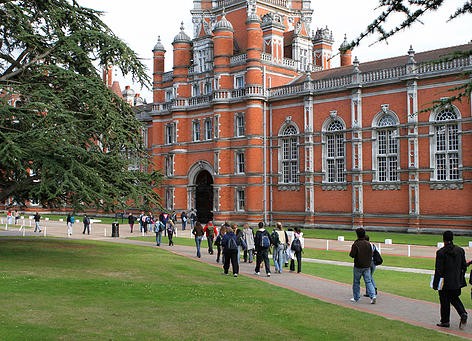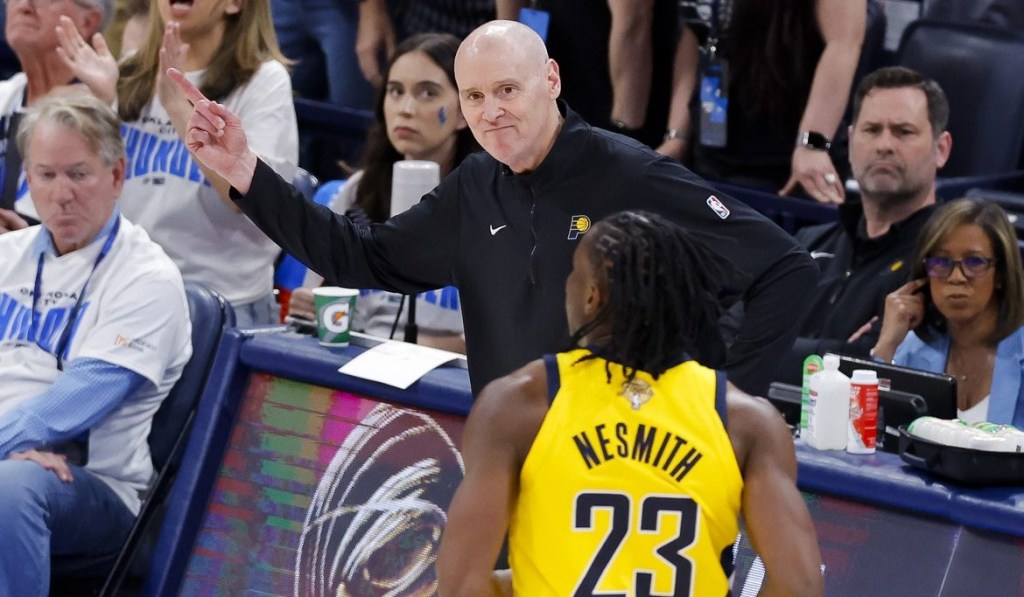By: Brandon Urry

As an undergraduate, graduate school can seem daunting and even have the perception of being an unattainable goal. However, don’t let this misconception hold you back from achieving your personal potential, especially if you have a desire to work in sports. Graduate school can serve as a very powerful tool to launch current students into a fulfilling and exciting career in management/administration within sports.
You might ask yourself, “Why go through grad school when I can just start in an entry-level sports position and work my way up?” Well, the choice is yours and you can choose to take that route. However, if you do some research, you will find that many successful sports executives and administrators began their careers in a graduate program of some kind. It may have been a graduate program in sports management, athletic administration or even an MBA, law or doctoral program. If any of these types of programs are what you are looking for to begin your career in sports, then adequate preparation now will help you expedite the process when entering a highly saturated profession.
In order to know which graduate school(s) to apply to, you need to conduct a search. If you are looking specifically at sport management/athletics administration graduate programs, then use websites such as NASSM.com (North American Society for Sport Management) or degreesinsports.com. You may also search the sports management program directory on sportsbusinessdaily.com. You should also invest time into researching the educational past of those who currently hold positions that you are interested in to know what they did to become qualified to be where they are today.
Some important factors to consider when researching a graduate program in sport management/athletic administration:
- Accreditation — Is the program, or the university it belongs to, accredited by a nationally recognized body?
- Reputation — What is the reputation of the program or the university it is a part of? Investigate whether the program has had a successful record of placing individuals within the area of sport you wish to enter. Alumni connections can be powerful.
- Online or On-campus delivery — Unless you already have a solid position in the industry, it’s in your best interest to consider on-campus programs only. You will have a much greater opportunity to connect and network with your peers in the classroom setting as well as program faculty, administrators in the athletic department and professional sports executives that are connected to the program.
- Location — You should try to select a graduate school that will provide you with a different experience from your undergraduate degree. Going to a new campus forces you to grow and will push you beyond your comfort zone. You will have the opportunity to know a new city/campus, adapt to a new university system and make new friends. That growth will contribute immensely to you being a confident professional. You should also think about where the school lies geographically in terms of proximity to internship possibilities at whatever level of sport you are interested in.
- Graduate Assistant (GA) or Internship possibilities — Getting that first job in sports is hard to do without experience. Therefore when selecting a school, make sure that the program provides the students with applied and practical professional experience via an internship or GA position. Experience in the sports industry is gold and unless you already have experience and only seek the higher education, a program that does not provide or facilitate that experience will be a less effective option for you. Do not be surprised to find that most internships in the sports world are unpaid. This is very common. Don’t let that hold you back as many high level administrators/executives started in these type of positions. GA positions are beneficial as they can provide tuition remission and a monthly stipend — or are paid hourly — depending on the university.
- Tuition and Living Expenses — If you are able to land a GA position to cover the cost of tuition then you will be covered. Otherwise, be sure to know how much the program will cost you not only in tuition, but also living expenses.
Once done compiling that information, you should be able to narrow your search down to three to five schools to which you want to apply. Your next step is to be ready for the application process. Most schools follow a standard application procedure consisting of the following steps:
- Completing a formal application
- Completion a baccalaureate degree and submitting transcripts
- GMAT or GRE scores
- Take the time to study and prepare for these tests. They may only be taken once every 30 days and are expensive ($250 for the GMAT and $200 for the GRE). There are many free online exams and resources to aid in the study process.
- Professional Resume
- Take the time to construct a resume you are proud of. Use resources such as a campus career center to aid in the process. Have it critiqued by others — the more eyes that see it the better.
- List (or letters) from references
- Make sure that you only use professional references. Supervisor at work, professor, etc. Never use family or friends.
- Personal statement
- This is your opportunity to sell yourself! Take advantage of it and articulate why you are a good candidate, what your career goals are and how the program will help you get there.
- Application fee
- Depending on the school, they can range from $40-$80.
During the application process, there are many pieces of information that you as the candidate should know about each school you are applying to. The list below is not finite as you might think of other questions to ask.
- Know who is in charge of admissions for the program and be in good communication with them while you complete the process. It shows professionalism and proactivity.
- Know the GRE/GMAT score expected from the applicant.
- Know if there are any prerequisites you need to complete before applying or enrolling.
- Know how long the program will take to complete.
- Know what connections the program has to internship opportunities.
- Know the application deadline. Do they admit in fall and spring, or just fall?
- Know the admission process and timeline — is it based solely on the application materials or do they conduct finalist interviews as well.
- Know the amount of students accepted per admission term.
- Know what type of financial assistance the program is able to provide in terms of GA positions, scholarships, fellowships or loans.
- Visit the campus(s) if possible to get a solid feel for the school. Contact the program to set-up an official visit and use the opportunity to proactively introduce yourself in-person.
Once admitted into a school, be prideful in your program and take advantage of every opportunity you are given as a student. The time will go fast. The title of student will open doors that would otherwise remain closed. Use the opportunity to dramatically increase your network. Make a goal to conduct monthly informational interviews with sports professionals. Volunteer for every weekend event that comes along. Use every opportunity to broaden your skill set; don’t put on career-narrowing blinders. Lastly, don’t let the experience slip-by with any doubts that you didn’t do everything within your power to achieve you dream.
As you will learn throughout a good sports management/athletic administration program, your personal brand — a combination of your reputation (what others think about you) and your character (who you are on the inside) — has a lot to do with how successful you will be in the sports industry. You build or take away from your personal brand with every action that you take. Constantly ask yourself — are my decisions enhancing or taking away from my brand?
With a humble and determined attitude and a focused vision on your goals, you can use a graduate education to send your career on an upward trajectory to an administrative or executive position within the sports industry.
Brandon Urry is the Program Coordinator for the M.A. in Intercollegiate Athletics Administration (MAIAA) program located in the College of Business at the University of Nebraska — Lincoln. He is a proud graduate of both Cal State University, Fullerton (B.A. In Broadcast Journalism) and Cal State University, Long Beach (M.A. Sport Management) and is happy to connect with aspiring sport professionals who seek career advice. You can connect with him on LinkedIn and he is reachable by email at burry2@unl.edu.





![[Subscription Customers Only] Jul 13, 2025; East Rutherford, New Jersey, USA; Chelsea FC midfielder Cole Palmer (10) celebrates winning the final of the 2025 FIFA Club World Cup at MetLife Stadium](https://frontofficesports.com/wp-content/uploads/2026/02/USATSI_26636703-scaled-e1770932227605.jpg?quality=100&w=1024)











